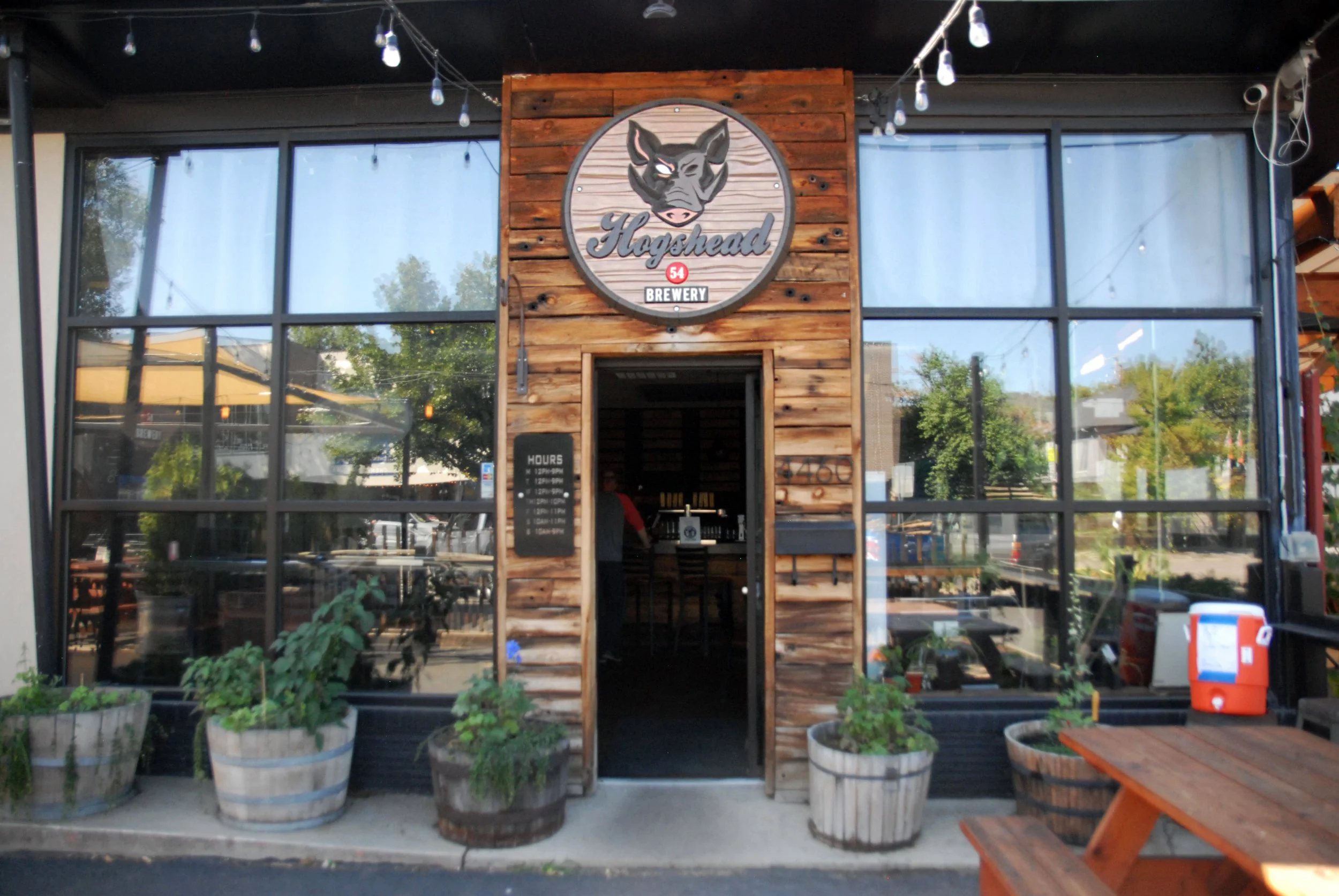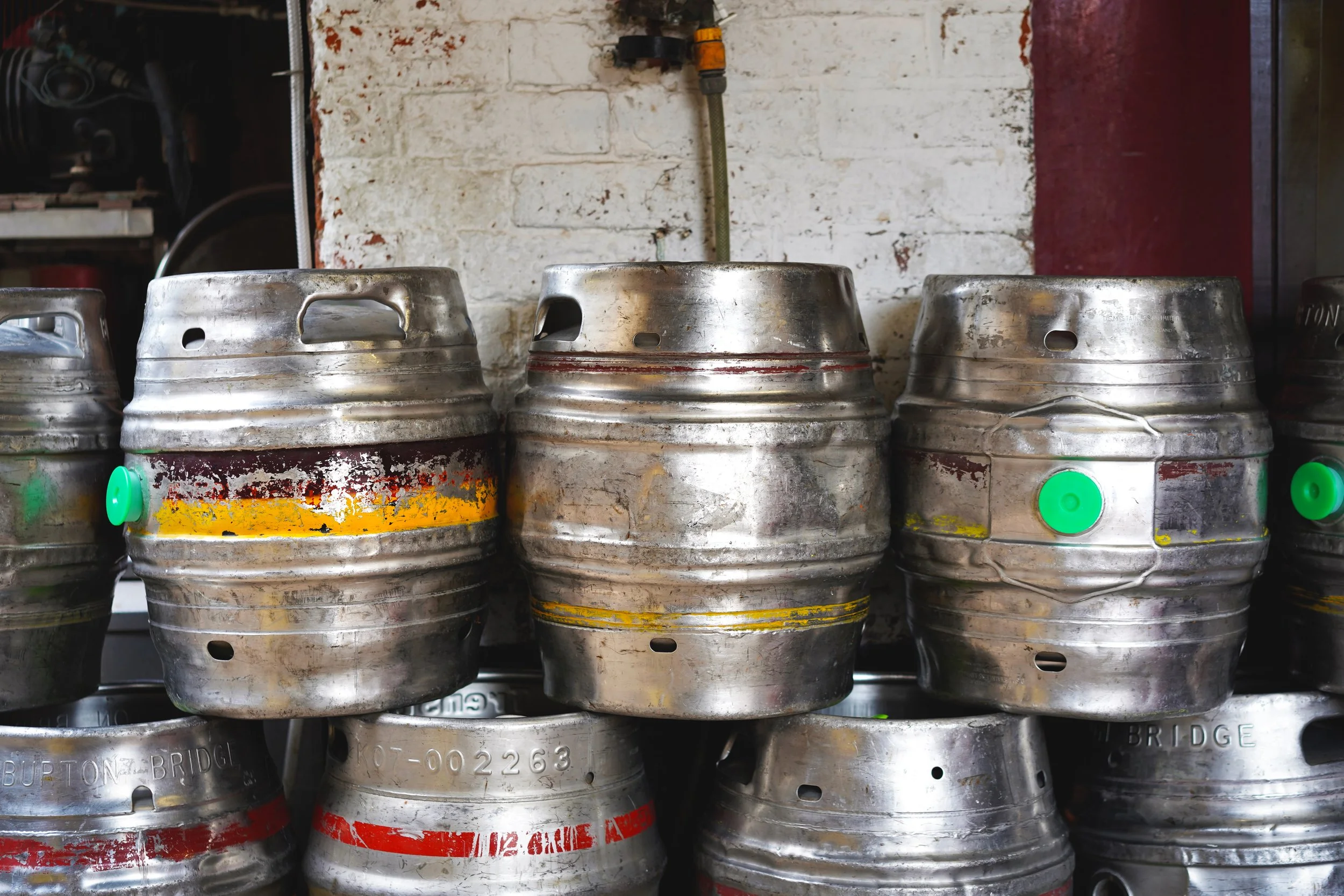Come On Fill Your Cup Up — Kicking Down the Wine World's Barriers
We were all new to wine at some point. I’m sure there was a time you can remember being daunted by saying the right thing about what you could taste, see or smell. Or perhaps you’ve found yourself breaking out into a sweat when it’s your turn to pick from the wine list. It’s certainly a scary world, but must it always be this way?
Today we’re lucky enough to say hello to a fresh crop of talent ridding the wine world of the smoke and mirrors that make it so intimidating, where social media and grassroots publications have allowed many undiscovered voices to come to the fore. Set amongst a climate where Lidl and Aldi’s wine list have amassed a cult following of bargain hunters, and online spaces foster growing communities of oenophiles, wine communicators are required to navigate a progressively democratic drinks scene should they choose to stay relevant.
The focus is shifting away from the mahogany-clad walls of the private gentleman’s club, and the way people speak about wine is starting to move with it.
“The traditional world of wine is too focused on the delights of the past,” Manchester-based natural wine influencer and educator Eoghan Neburagho tells me. “There’s the classical[ly] ‘beautiful’ fonts for labels, as well as [a focus on] estates or ‘chateau’ which are owned by the most elite [people] this world has to offer. How is a working class person supposed to relate to that?”
Eoghan, who you may either know from his own Instagram account @natural_swill, or the educational clips he makes for wine bar Top Cuvee, creates videos of himself out and about in the streets of Manchester, reviewing his favourite new low-intervention finds in front of treasured local spots. Creating videos pairing wine with dishes like jollof rice or lamb shawarma, Eoghan is on a mission “to make the world of wine approachable to all.”
““Sometimes I smell the wine and for me it smells of mango lassi.””
The “traditional world” that Eoghan references often still bows to a small circle of critics where the use of the tasting notes like ‘cigar box’ and ‘gunflint’ help to paint a picture of the demographic they all draw from. There is, of course, no disputing that these critics know their onions, but by remaining in the chokehold of the same stalwarts whose language and scoring system appears almost unchanged for over 40 years, we risk losing the electric artistry, personality and accessibility that comes with regularly updating the voices and perspectives we choose to hear from.
In a 2024 interview with winemaker Maheshika Bertin from Abbie Moulton and Maria Bell’s book New British Wine, Maheshika poignantly states, “When we talk about tasting notes, for example, we connect everything to Western food and flavour [...] Sometimes I smell the wine and for me it smells of mango lassi. But if I point it out people don’t know what I mean.”
Illustrations by Heedayah Lockman
In discussing her own personal reference points, Maheshika perfectly sums up the importance of broadening our scope of perspectives.
“If you have sommeliers and people that talk about wine in a way that actually includes people from every kind of background, that’s a way of opening a door to everyone,” she says. With access to social media, and a whole host of winemakers who are breaking with tradition, there’s a wealth of communicators who are reinventing the wheel in a bid to open up doors to large and untapped groups of new consumers.
***
One person who shares a similar mission to Eoghan Neburagho is wine bar owner and industry expert Jamie Isaac of Nobody Asked Me. Surreptitiously nestled within a small, four-by-four metre space on Clapton’s Chatsworth Road, this gem of a bar specialises in showcasing low-intervention wine from the more obscure regions of Europe. It’s a true neighbourhood spot that spills both out onto the street and into the belly of its hidden cellar. It remains a treasured gem that the residents of Clapton hold sacred.
“We’ve moved away from the old white dudes in suits telling us what vintage is ‘best’ to a swathe of young ‘sommeliers’ confusing people with new language,” Jamie tells me. “We need to wind our neck in as an industry and start to make the general public unafraid of talking about wine.”
“For me [talking about wine] is all about making it accessible to everyone, so I avoid using wine jargon and try not to be too specific,” he adds, broaching how he introduces a grail piece from the cellar to a customer. Simplifying a topic may sound pretty obvious to us, but in an industry littered with linguistic theatrics it’s a statement that is as refreshing as a supermarket Savvy B.
““We need to wind our neck in as an industry””
“No two people’s taste buds are the same, so I’d never put too much weight into my description,” says Eoghan following a similar vein of thought. “It’s all about what the individual thinks they can taste.” These two enthusiasts are less concerned with centring their own experience in the descriptors they create, instead shifting the power over to the taste buds of the consumer.
But when introducing newbies to wine, tasting notes and curt descriptions are only a part of the puzzle. Sia Smith, founder of Finley’s in Hoxton has another hook.
With its stripped back interior and set plaster walls, you’d think you had stumbled across a natural wine bar plucked straight out of an East London satire. But there’s a sheen to Finley’s that differentiates it from its counterparts. Specialising in selling wines either made by women winemakers or women-owned businesses, this community spot in the heart of Hoxton is intent on giving the women and non-binary people of the trade their flowers.
“It all starts with the story,” Sia tells me. “If someone is new to wine, the story is a pretty strong sell. Customers usually connect to this first.”
Amongst her shelves Sia picked out Putes Feministes (women whores) by winemaker Fleur Godart—a vintner known for her rebellious range of wines that financially contribute back to causes close to her heart. The title of this range (which I have since seen on multiple physical and online shelves) derives from a slur flung at Fleur and her business partner by an angered man at an industry event. In the case of this wine, language is central to its very existence, its salacious story is certainly a fabulous sell.
“The wine is the art,” Sia continues, as she pulls out more bottles from her shelves. The minimalist interior of this bar is wholly intentional. Each bottle, complete with its magical elixir and playful label, are a reflection of the personality of the individual winemaker and business that Sia and her team wants to elevate.
However, the artfully curated bottles are not the only thing that takes centre stage in this East London trove. As I wander into the toilet at the back I’m quickly greeted by hundreds and hundreds of cats that plaster the bathroom walls. Sia tells me the décor is modelled after her own furry baby—an icon that also appears on the bar’s logo. Individuality forms the backbone of this little Hoxton haven. It’s Sia’s guts spilled out into concrete.
***
A gripping story is one that brims with personality, which is what wine merchants Parched look for in their pursuit of show-stopping wines.
“You know when someone is telling you about something they did and you can sense their excited energy? We tried to achieve just that. Sometimes it just requires a short sentence with a few swear words,” says founder Dan Long on the style that he, and fellow Parched team members Megan Jones and Fionn Reidy, have decided to adopt when sending their latest written offers to clients.
Established in 2020 first as Thirsty Boy Wine, then Natty Boy Wines, before settling on Parched just this year, this merchant is behind the bars: dan’s in Dalston, and newly opened Ken’s in Clerkenwell.
““Sometimes it just requires a short sentence with a few swear words.””
“Everyone who writes [our wine offers] does so in the first person and it is conversational and open rather than salesy and gimmicky as is the norm,” Dan continues. Often written like a hurriedly excited text that doesn’t shy away from acronyms—‘IYKYK’—and colloquialisms—‘more of a new world girlie?’ —Parched’s offers couldn’t differ more from the floral caricatures of wine speak that usually springs to mind.
Each wine professional here has shown how personality shines through everything they do, and how integral this has been in fostering an open and accessible space for talking and learning about wine. After all, the single most important thing about wine is people—the people who make it, the people who sell it, the people we drink it with—and the varied perspectives and characters within the community is what make it so special.
There’s clearly a push-pull between centring the individuality of the winemaker, writer or sommelier when speaking about wine, whilst making sure that enough room is left for the consumer to come to their own conclusions, free of judgement. In 2024 we’re seeing a contemporary movement in the industry, where gatekeeping is seen as an unfashionable trait of the past, and more and more people are proving to us that perhaps it’s not such a scary world after all.
Pellicle is reader supported and proudly free to read. Become a Patreon subscriber and enable us to commission and publish more stories just like this one—and enjoy special Pellicle Patreon perks too. Subscribe here.

















